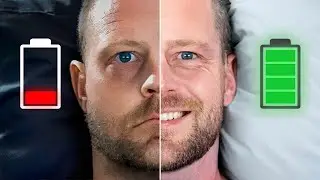Tips for Relaxing Your Diaphragm and Ending Hiccups
Hiccups often occur when the diaphragm involuntarily spasms and doesn't relax. To help calm this reaction, consider practicing paced breathing exercises, which can encourage your diaphragm to settle. Additionally, massaging the phrenic nerve, located at the base of the neck where it enters the chest, can be beneficial. This nerve controls the diaphragm, and gentle stimulation might help alleviate the spasms. Integrating magnesium into your diet, a mineral known for helping muscle relaxation, along with other electrolytes, can also support the normal function of your diaphragm and reduce hiccup episodes.
----
Don't know where to start on your journey to better health and living? Get a copy of my FREE book here: https://www.livingooddailybook.com/ld...
Shop all Livingood Daily Products on Amazon here:
https://www.amazon.com/stores/page/6F...
Follow and listen to Dr. Livingood on any of these platforms:
Facebook - / drlivingood
Instagram - / drlivingood
TikTok - / drlivingood
Pinterest - / _shop
Blog - https://drlivingood.com/real-health/
Podcast - https://anchor.fm/dr-livingood
Medium.com - / drblakelivingood
LinkedIn: / drlivingood
Twitter: / doctorlivingood
DISCLAIMER:
Dr. Blake Livingood is a licensed Chiropractor in North Carolina and Florida, he founded a clinic in North Carolina but no longer sees patients. He received his Doctor of Chiropractic degree from Life University in 2009. Dr. Livingood uses “doctor” or “Dr.” solely in relation to his degree. This video is for informational purposes only and should not be used as a reason to self-diagnose or as a substitute for diagnosis, medical exam, treatment, prescription, or cure. It also does not create a doctor-patient relationship between you and Dr. Livingood. You should not make any changes to your health regimen or diet before consulting a qualified health provider. Questions regarding your personal health conditions should be directed to your physician or other qualified health providers.



![Soraka baron steal :]](https://images.mixrolikus.cc/video/FzI0YhWtP6M)

![[Обзор] Red Orchestra 2 - Игра для героев](https://images.mixrolikus.cc/video/QjDXb1qbVkQ)

![УБОГИЕ ХОРРОРЫ с ДНИЩА СТИМА! [СТИМ ТРЭШ]](https://images.mixrolikus.cc/video/GVyiUodQOQQ)


















![7 INSANE Benefits of Eating One Meal A Day [Complete Intermittent Diet Plan]](https://images.mixrolikus.cc/video/RjKAx3An6-Q)




